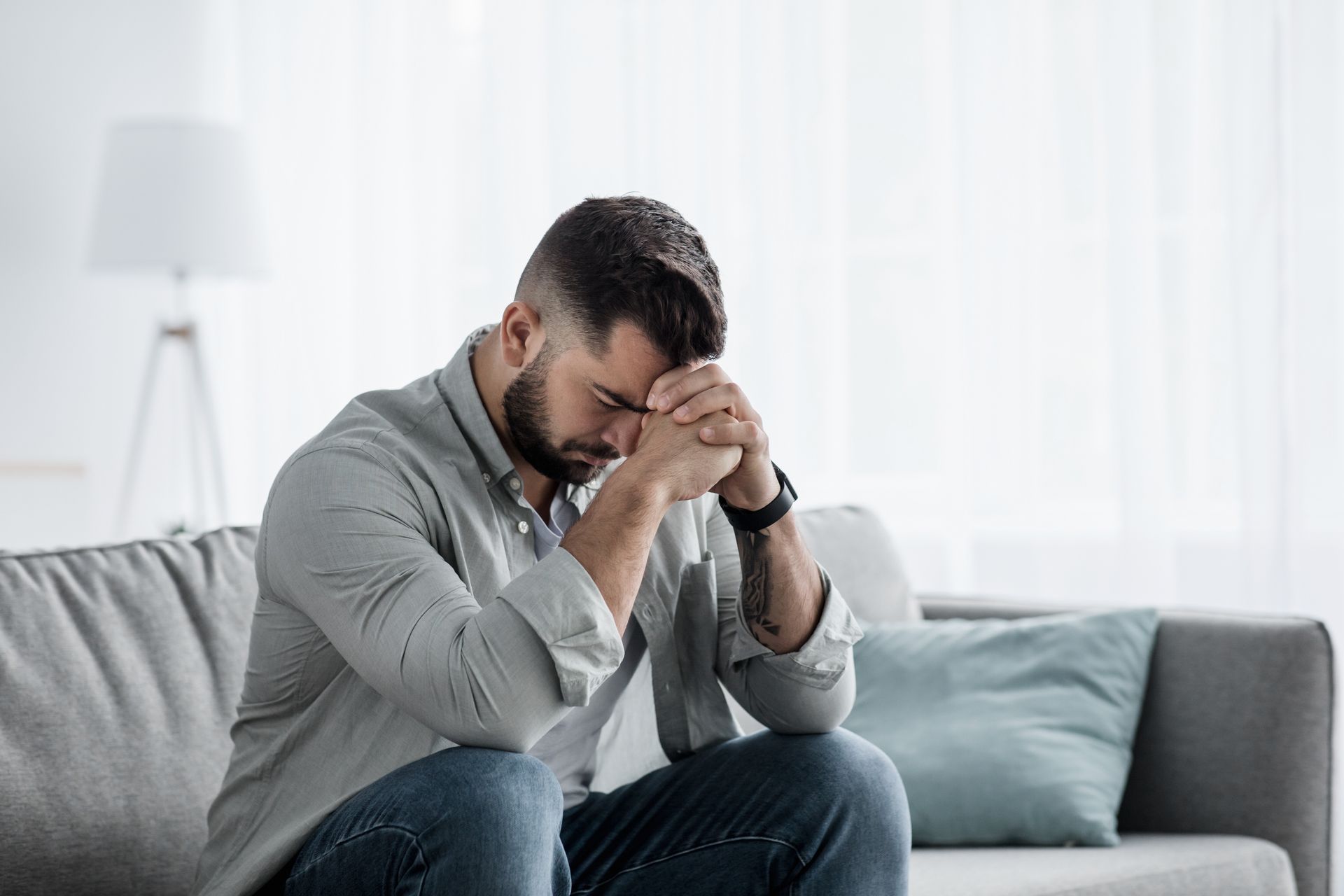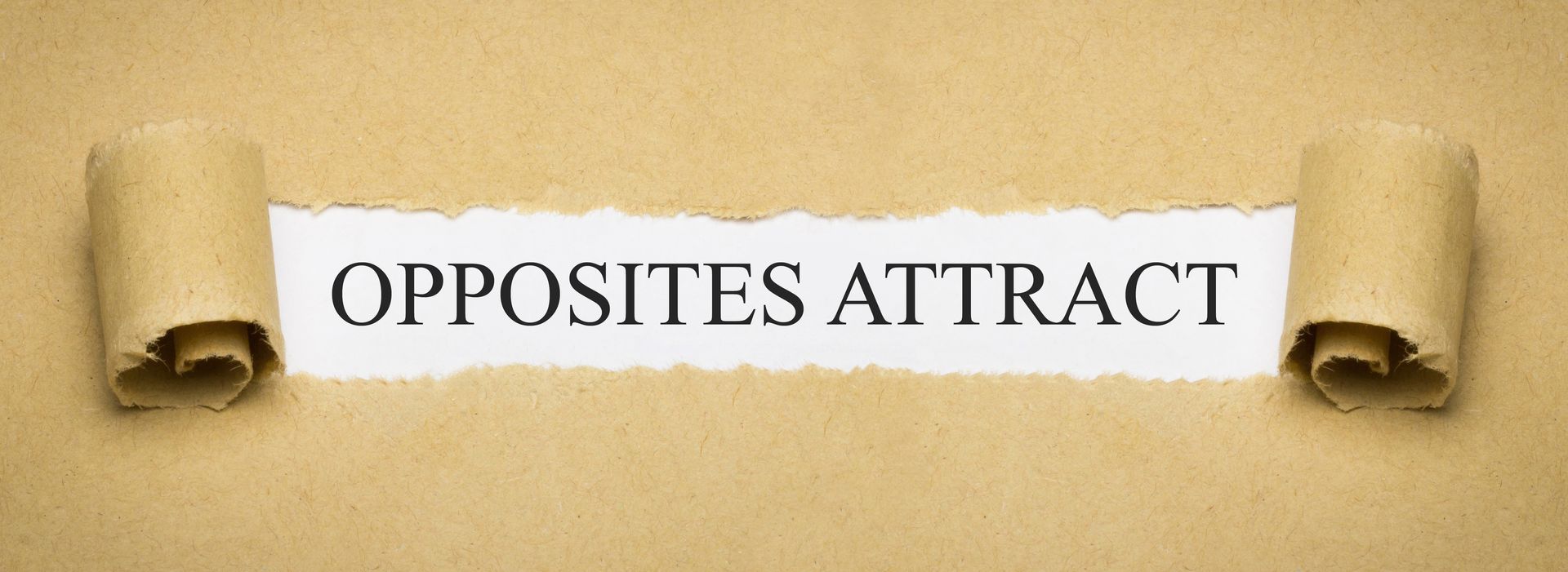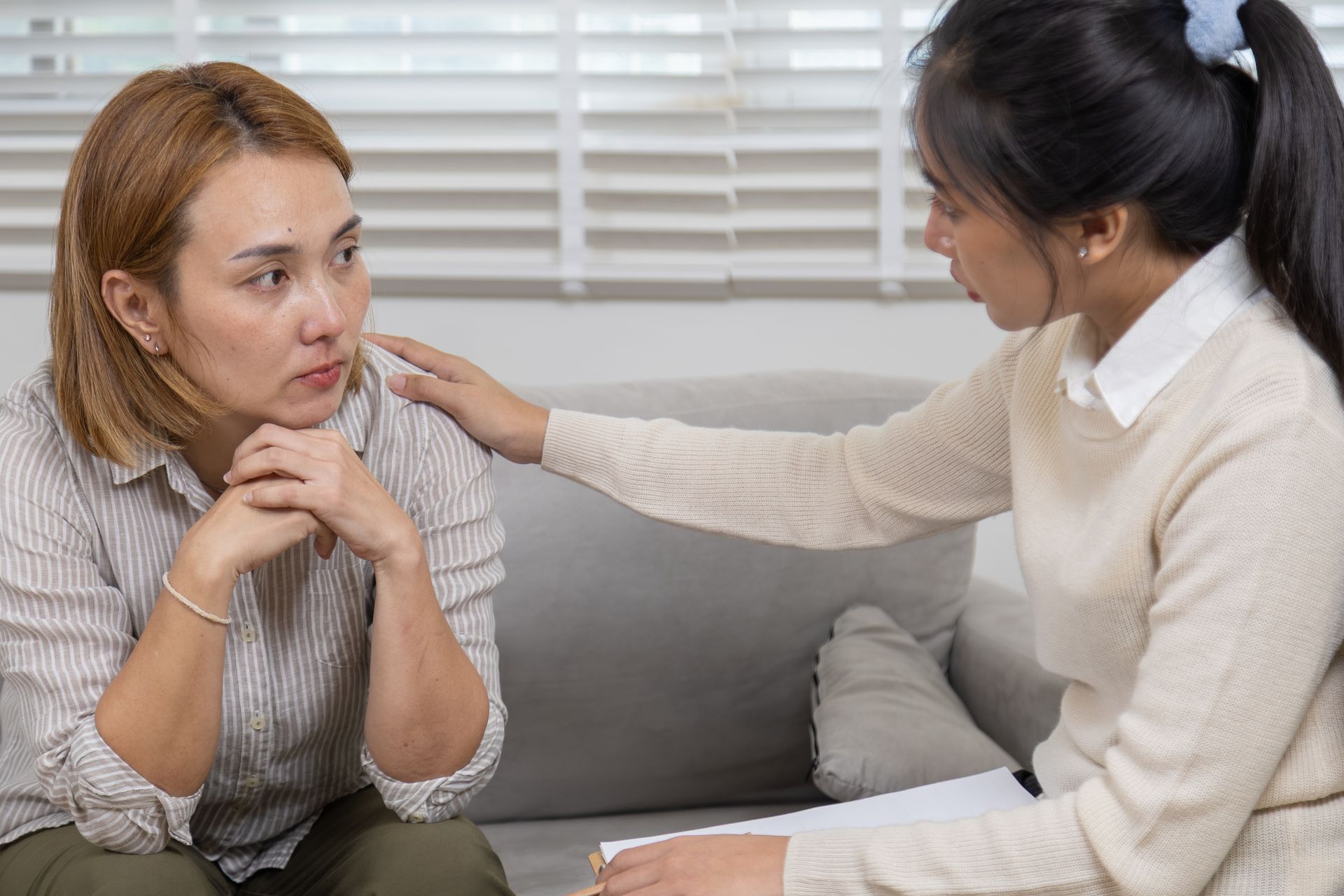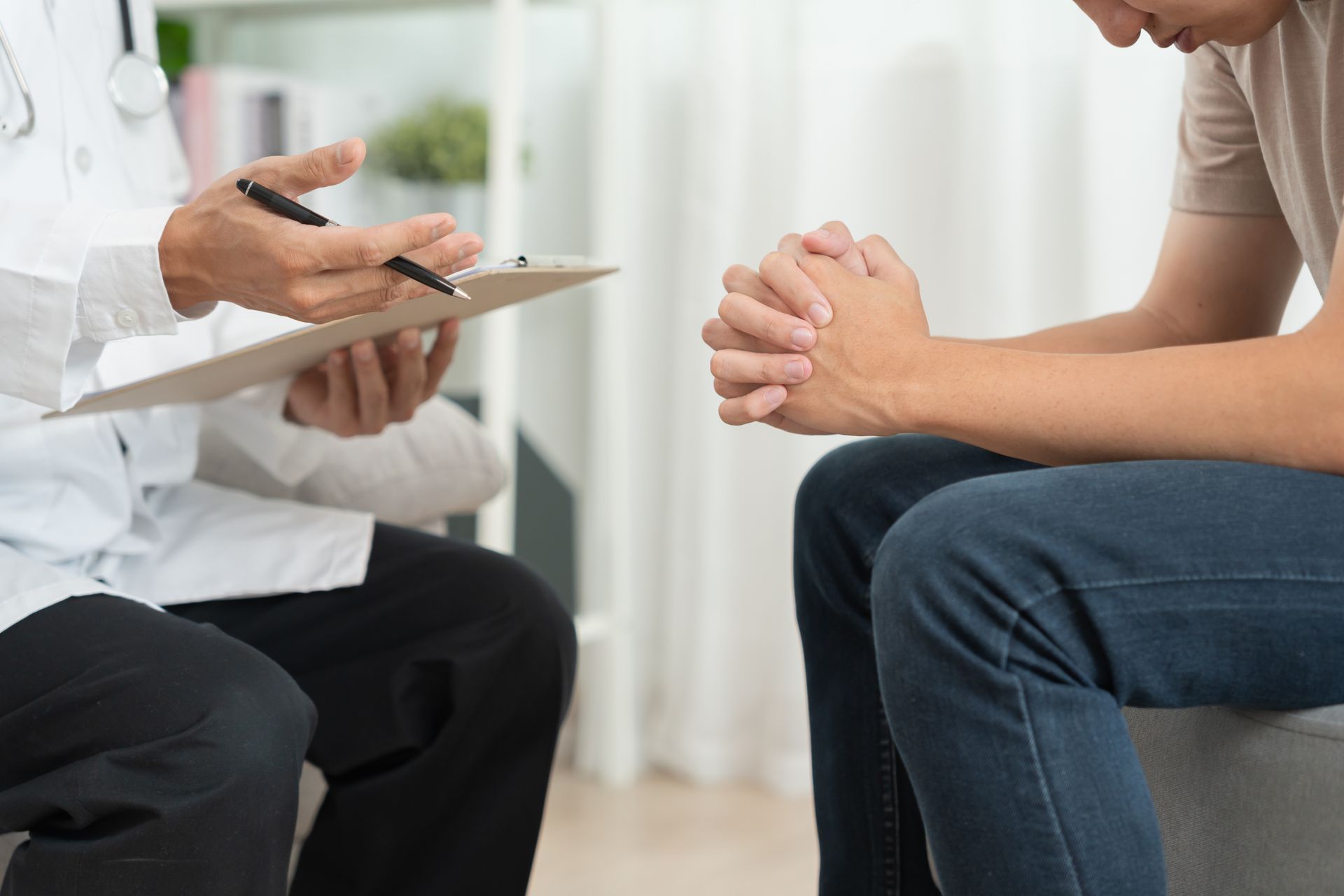PTSD and the Black and Brown Community

PTSD, or Post-traumatic Stress Disorder, is an anxiety disorder that can develop after a person experiences a traumatic event. The disorder can have severe and long-lasting effects on the mental health of individuals affected by it. While PTSD has long been associated with veterans and trauma experienced in war, the disorder is increasingly being seen in minority communities such as Black and Brown individuals who experience racism, violence, and trauma in daily life. In this blog post, we will take a look at how PTSD affects the Black and Brown community and what can be done to address this issue.
Black Men Trauma
Black men in America experience PTSD at significantly higher rates than other groups. One study found that nearly one in four Black men will experience PTSD in their lifetimes. That same study found that Black men are also more likely to suffer from chronic, long-term PTSD.
There are a number of reasons why Black men may be more susceptible to developing PTSD. First, they are more likely to experience traumatic events than other groups. Studies have shown that Black men are more likely to be the victims of violence, whether it is interpersonal violence or police brutality. They are also more likely to witness violence, whether it is within their own communities or on the news.
Second, Black men may be less likely to seek help for their mental health needs. There is a significant stigma around mental health in the Black community, which can prevent people from seeking help. Additionally, there may be a lack of trust in mental health professionals, who are often seen as part of the establishment that has oppressed Black people for generations.
Finally, Black men may have difficulty accessing quality mental health care. Even when insurance covers mental health services, there may be few providers who understand the unique experiences of Black men and how they contribute to PTSD. There may also be cultural barriers that make it difficult for Black men to open up about their experiences and feelings.
If you are a Black man struggling with PTSD, know that you are not alone. There are many resources available to help you heal and cope.
Inner City Violence
Inner city violence is a growing problem in the United States. According to the National Alliance on Mental Illness, one in four black Americans live with some form of mental illness. This number is even higher for Latinos, with one in three experiencing mental illness.
These communities are also more likely to experience traumatic events such as violence, abuse, and poverty. These experiences can lead to post-traumatic stress disorder (PTSD). PTSD is a mental health condition that can occur after someone has experienced or witnessed a traumatic event.
Symptoms of PTSD can include flashbacks, nightmares, anxiety, depression, and difficulty sleeping. People with PTSD may also struggle with substance abuse and relationship problems.
PTSD can have a profound impact on someone’s life. It can make it difficult to work or go to school. It can also lead to homelessness and unemployment. In fact, people with PTSD are more likely to wind up in jail or prison than those without the disorder.
The good news is that there are effective treatments for PTSD. Cognitive behavioral therapy (CBT) is one of the most popular and proven methods for treating PTSD. CBT can help people identify and change negative thought patterns that contribute to their symptoms. Medication can also be used to treat PTSD, though it is not always necessary.
If you or someone you know is struggling with PTSD, there is help available. There are resources available through the National Alliance on Mental Illness and Virtual Psychiatric Care.
Racism and Microaggressions
Racism and microaggressions are two major forms of trauma that can lead to PTSD in the black and brown community. Racism can be defined as the belief that one race is superior to another, or the act of discriminating against someone based on their race. Microaggressions are everyday slights, insults, or indignities that people of color experience in their daily lives. These small acts can add up over time and lead to major feelings of stress and anxiety.
Both racism and microaggressions can take a toll on a person's mental health. Studies have shown that exposure to racism can lead to increased levels of anxiety, depression, andpost-traumatic stress disorder (PTSD). In fact, research has found that black adults who reported experiencing more racial discrimination were more likely to develop PTSD than those who reported less racial discrimination.
Microaggressions can also be traumatic for people of color. A study of Latino college students found that those who experienced more microaggressions were more likely to have symptoms of PTSD. This is likely because microaggressions represent a constant reminder of inequality and discrimination. When someone is constantly being reminded of their inferior status, it can lead to feelings of powerlessness, worthlessness, and despair.
If you or someone you know is struggling with PTSD, there are many resources available to help. The National Center for PTSD has information on treatment options and how to find support. You can also contact a local provider. If there is not one available to you,
Virtual Psychiatric Care offers convenient, online services where you can receive treatment in the comfort and privacy of your own home.
Overt Racism
There is no single experience of racism. It manifests in many different ways, some of which are overt and others more subtle. Overt racism is the most obvious and easily recognizable form of racism. It includes things like racial slurs, hate speech, and intentional discrimination or exclusion.
While overt racism is certainly hurtful and can cause lasting damage, it is also important to remember that racism doesn't always look like this. Racism can also be more subtle and insidious, taking the form of microaggressions or everyday discrimination. Regardless of how it manifests, racism is always harmful and should be challenged whenever it occurs.
Mental Effects Over Time
It is well-documented that PTSD can have a negative effect on mental health, but new research is emerging that suggests that the effects of PTSD may be cumulative over time. A recent study published in the journal JAMA Psychiatry found that people with PTSD who had experienced multiple traumas were more likely to experience symptoms of depression and anxiety than those who had experienced a single trauma. The study's authors suggest that the findings "support the need for early detection and intervention" for people with PTSD.
PTSD can also take a toll on physical health. A study published in the journal Psychosomatic Medicine found that people with PTSD were more likely to experience cardiovascular problems, such as high blood pressure and heart disease. The study's authors believe that the stress of living with PTSD may lead to these physical health problems.
If you or someone you know is struggling with PTSD, it is important to seek help from a mental health professional. There are treatments available that can make a difference.
Generational Trauma
Generational trauma is a form of trauma that is passed down from one generation to the next. It can be the result of many things, but most commonly it is the result of intergenerational trauma, which is when a person experiences a traumatic event and then passes that trauma down to their children.
There are many factors that can contribute to generational trauma, but some of the most common are poverty, violence, racism, and oppression. When someone experiences any of these things, it can have a lasting impact on their mental and emotional health. And when those impacts are passed down to future generations, it can create a cycle of trauma that is very difficult to break.
There are many ways to heal from generational trauma, but it starts with acknowledgement and understanding. We must first recognize that this type of trauma exists and that it has real consequences for our mental and emotional health. Once we do that, we can start to work on healing the wounds that have been passed down to us. Often times, this will involve therapy or counseling, both individual and group. It is only through healing ourselves that we can hope to break the cycle of generational trauma and create a better future for ourselves and our children.
Seeing Provider of Color Important for Relatedness
When it comes to PTSD and the Black and Brown community, provider of color can be an important factor in relatedness. When people of color see someone who shares their racial identity, it can help them feel more comfortable and safe sharing their experiences. This provider of color can provide valuable insight into the cultural context of the trauma experienced by the individual. In addition, this provider can also offer a sense of hope and understanding that may be difficult to find elsewhere.
Trust Factor
When it comes to the topic of mental health, the black and brown community has been underserved and misunderstood for far too long. Mental health is often seen as a taboo topic within our communities, and as a result, many people suffer in silence. PTSD is one of the many mental health conditions that disproportionately affects black and brown people.
The National Center for PTSD estimates that about 3.6% of U.S. adults will experience PTSD at some point in their lives. For black people, that number is closer to 5%. And for Native Americans, it’s an staggering 8%. People of color are more likely to experience trauma than their white counterparts, and yet we are less likely to seek out treatment or even talk about our experiences.
There are a number of reasons why this is the case. For one, we may not have access to quality mental healthcare. According to a report from the American Psychiatric Association, only 4% of psychiatrists are black or Latino. This means that people of color are less likely to see a psychiatrist who can relate to their experiences and understand their cultural context.
Another barrier to care is the stigma surrounding mental illness within our communities. Mental health is often seen as a weakness, something that should be kept hidden away. This shame prevents people from seeking out help and getting the treatment they need.
Lastly, there is a lack of trust when it comes to mental healthcare providers within our communities. Historically, black and brown people have avoided mental health care treatment due to the stigma that surrounds it.
Final Thoughts
PTSD is a mental health condition that can be caused by exposure to traumatic events. It is estimated that about 7% of the US population will experience PTSD at some point in their lives. The prevalence of PTSD is even higher among certain groups, such as military personnel, first responders, and survivors of sexual assault or other traumas.
minorities in the United States, including Black and Brown people, are more likely to experience trauma than their White counterparts. This is due to a variety of factors, such as systemic racism, poverty, and violence. As a result, minorities are also more likely to develop PTSD.
There is a lack of awareness about PTSD among minority communities. This can make it difficult for people to get the help they need. Additionally, there is a stigma surrounding mental health conditions that can prevent people from seeking treatment.
It is important to understand the impact that trauma can have on minorities and to provide support for those who are struggling with PTSD. Treatment options are available and there is hope for recovery.











